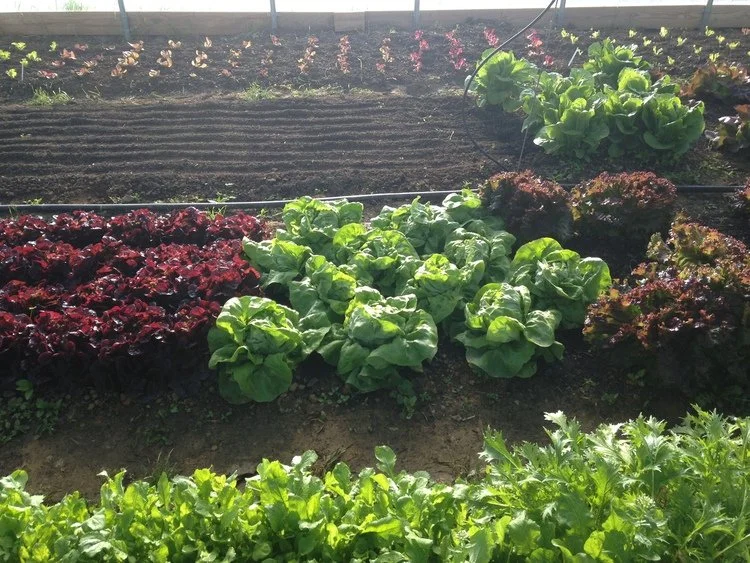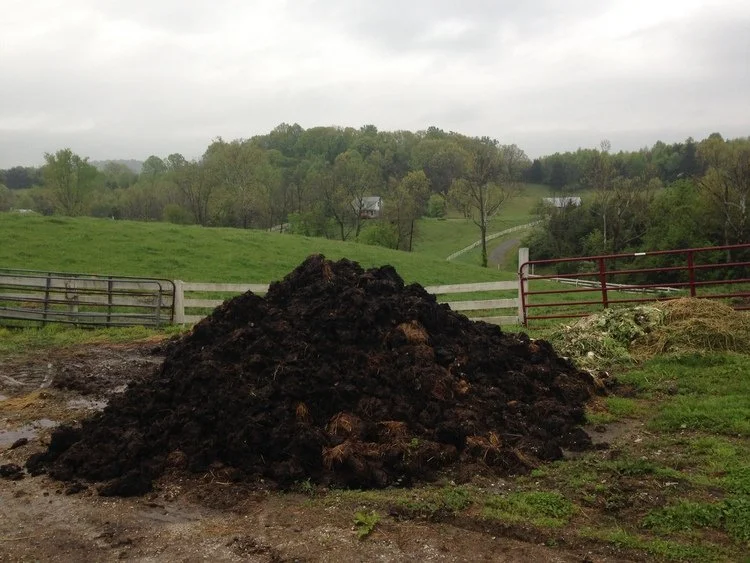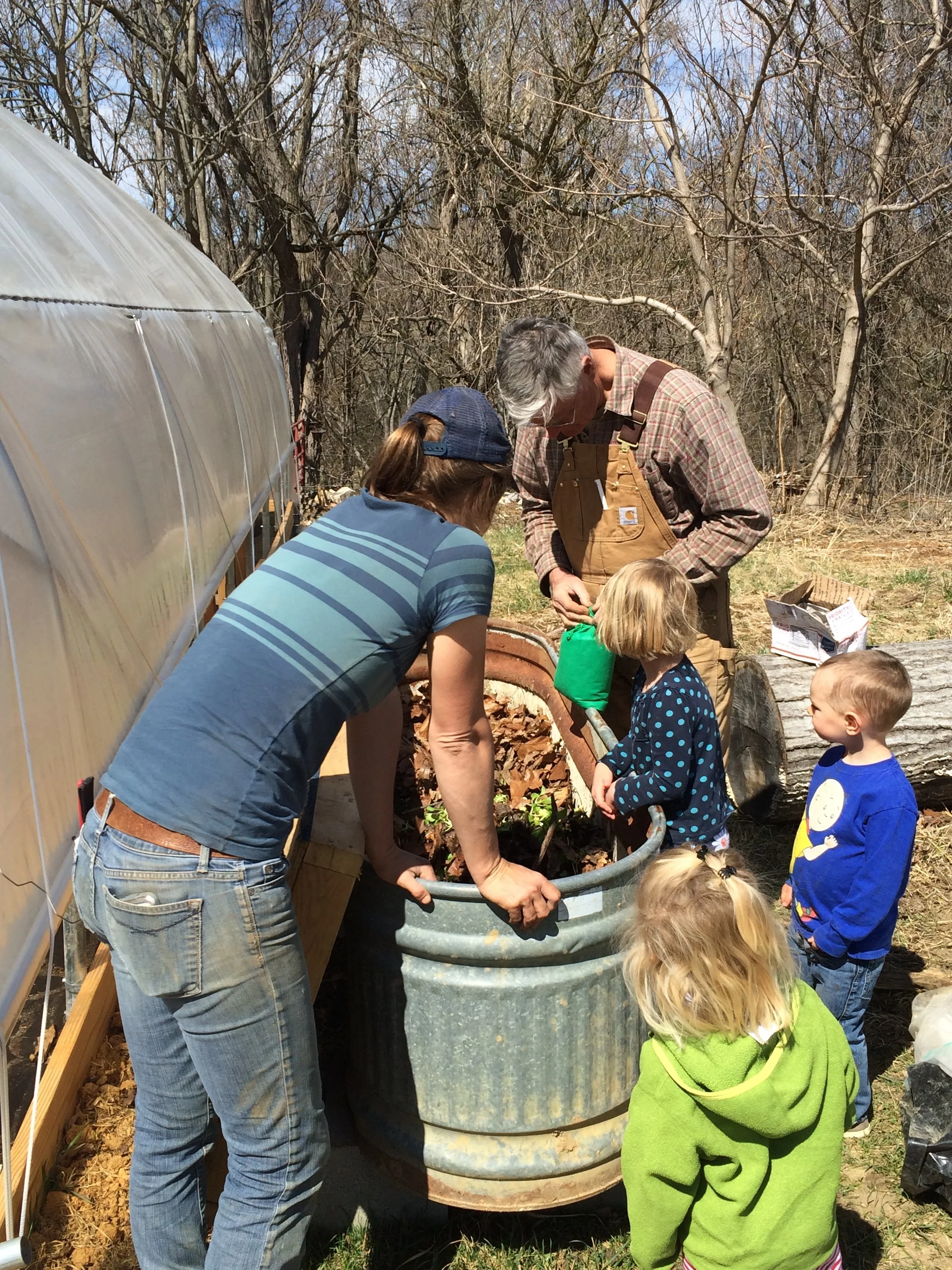Learning about compost
Why does our lettuce look so beautiful? I don't know, maybe because I sing to it at nigh? :) More probably (I'm a little bit tone deaf) it is because we condition our soil with lots of dark, rich compost. This spring we brought in two large loads of black gold from a fellow farm friend in Floyd County - Popular Manor Enterprise. We have relative heavy clay soils, so the compost really helps enrich the land, adding nutrients and organic matter to the soil.
Sadly, our friends at PM&E are going out of business.. no more compost for me :(. So, we're ramping up our learning and focusing on making compost ourselves (this has always been the plan, just a bit further off). With the help of a grant from Natural Resource Conservation Services (NRCS) next year we will be building a new compost facility. This will help us managing the turning and heating process necessary to transform organic waste and manure in to compost. Ultimately, this process is a key part of our vision for a full circle farm - our vegetables take nutrients out of the soil (and into your belly :), our animals graze the pastures, they produce high nutrient waste, we turn this waste into compost and introduce it back in to the land to produce rich healthy crops!
Our other compost venture is also underway. We got worms! Worms are super effective and efficient digesters. They can turn a bin full of vegetable waste into rich compost in just a few months! Their digestive process produces incredibly concentrated compost that can be made into "tea" to spray directly on plants. There are many farmer legends swearing that worm tea will cure all manner of plant diseases and ward off pests. I won't promise anything for certain, but I will say that vermiculture (i.e. worm poo) is another excellent tool in the organic farmer's tool belt and I like having them around :)



